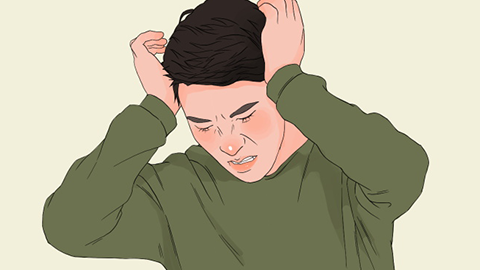Why does the Baihui acupoint hurt?
Under normal circumstances, pain in the Baihui acupoint may be caused by mental tension and excessive stress, lack of sleep, migraine, cervical spondylosis, hypertension, and other factors. If discomfort occurs, it is recommended to seek medical attention promptly. Detailed analysis is as follows:

1. Mental tension and excessive stress
Prolonged mental tension and excessive stress can cause tension in the scalp muscles, thereby affecting the nerve endings at the Baihui acupoint and its surrounding areas, leading to pain. In daily life, one should learn to relax by methods such as deep breathing, yoga, or meditation to alleviate mental stress.
2. Lack of sleep
Insufficient sleep prevents the brain from getting adequate rest, thus affecting blood circulation and nerve function in the scalp, causing pain at the Baihui acupoint. Maintain a regular schedule and ensure 7-9 hours of high-quality sleep each night. Avoid using electronic devices before bedtime to improve sleep quality.
3. Migraine
Migraine may be caused by factors such as heredity, endocrine changes, diet, and environment. During a migraine attack, pain may occur at the Baihui acupoint and surrounding areas, often accompanied by symptoms such as nausea, vomiting, photophobia, and phonophobia. Medications such as ibuprofen sustained-release tablets, ergotamine caffeine tablets, or pethidine hydrochloride injection may be used under a doctor's guidance for treatment.
4. Cervical spondylosis
Cervical spondylosis may be caused by degenerative changes in the cervical intervertebral discs or bone spurs in the cervical vertebrae. Cervical lesions may compress nerve roots or vertebral arteries, causing pain at the Baihui acupoint. Accompanying symptoms may include neck stiffness, numbness in the upper limbs, or dizziness. Follow medical advice to use medications such as Jingfukang granules, mecobalamin tablets, or flunarizine hydrochloride capsules for treatment.
5. Hypertension
Hypertension may result from the combined effects of genetic, dietary, lifestyle, and environmental factors. Elevated blood pressure can cause cerebral vasodilation, leading to pain at the Baihui acupoint, and may also be accompanied by symptoms such as tinnitus, palpitations, and chest tightness. Blood pressure can be controlled under a doctor's guidance using medications such as nifedipine controlled-release tablets, irbesartan tablets, or losartan potassium-hydrochlorothiazide tablets. At the same time, adjust your diet to reduce salt intake and increase physical activity.
In daily life, it is important to stay relaxed, ensure adequate sleep, avoid prolonged periods of working with the head down, regularly monitor blood pressure, and maintain a healthy lifestyle to prevent the occurrence of this symptom.





